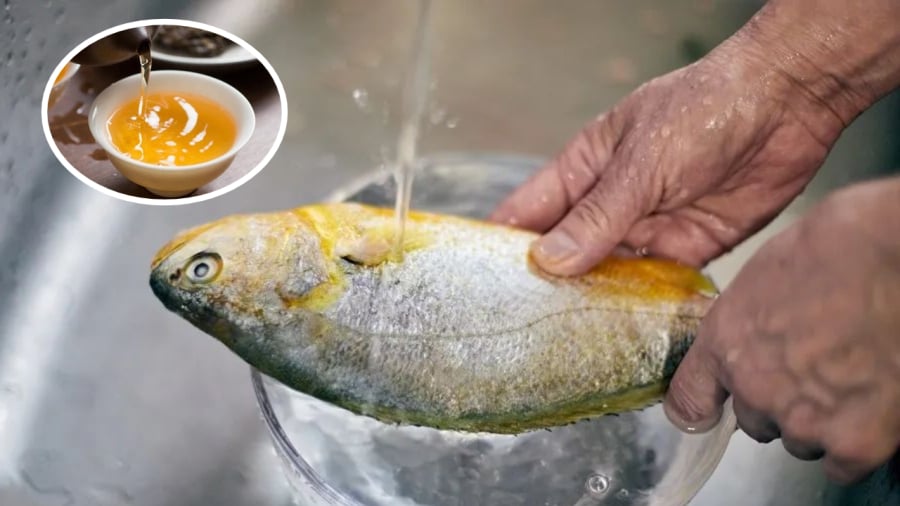Selecting and Preparing Fish
The first and most important step is to choose fresh and good-quality fish. The fresher the fish, the less likely it is to have a strong odor. Ideally, choose a fish that is still swimming and looking healthy. Look for clear, bright, and black eyes; pink-red gills that are firmly attached to the operculum; scales that are tightly adhered to the body; and vibrant overall coloration.
When pressing on the fish’s body, it should feel firm with good elasticity.

Choose fresh fish with good elasticity. It is important to remove the gills, intestines, fins, and scales before washing the fish you bought.
Once you’ve purchased your fresh fish, it’s time to clean it. Scale, gut, and trim the fins, or ask your fishmonger to do this for you, and then continue the process at home to eliminate any fishy odor.
Scrape off the thin, dark membrane and any blood from the belly and gills of the fish, as these are the main sources of the fishy odor.
For fish like carp, snakehead, and mackerel, make a small incision with a knife along the body, close to the gills, and pull out the thin, silvery nerve cord. This also contributes to the fishy smell.
For catfish and basa, you can use ash from the fireplace to rub all over the surface of the fish to remove the slimy coating on the skin and neutralize the odor.
Methods to Remove the Fishy Odor from Fish
– Rice Washing Water
Washing fish with rice water is a traditional method that has been used for ages. After cleaning the fish, simply soak it in rice washing water for about 10-15 minutes, and then rinse it with clean water.
– Lemon and Whole Salt
This is a very popular way to neutralize the fishy odor. Sprinkle some whole salt on both the inside and outside of the fish. Then, use lemon to rub all over the fish to remove the slime and neutralize the odor. Rinse the fish with clean water and pat it dry.
You can substitute lemon with vinegar. Both ingredients contain acid, which is very effective in removing the fishy odor.
– Alcohol and Ginger
Pound the ginger to release its essential oils. Soak the ginger in white alcohol or cooking alcohol. Use this mixture to rub both the inside and outside of the fish to neutralize the odor and remove the slime.
– Tea/Tea Water

Washing fish with tea or tea water will help remove slime and neutralize odors effectively.
You can use fresh tea or dark tea (black tea) to soak and wash the fish for about 10 minutes. Soaking the fish in tea not only removes the slime but also neutralizes the odor. This method is especially effective for saltwater fish.
Additionally, you can use green tea leaves or a small amount of green tea to cook with the fish. This will make the fish both fragrant and firm.
– Diluted Salt Water
After removing the unwanted parts like the gills and scales, rinse the fish with clean water and then soak it in diluted salt water for about 5-10 minutes. Then, remove the fish from the brine and rinse it again to get rid of any remaining slime and odor. Finally, pat the fish dry and proceed with your desired cooking method.
– Milk Soak
Soaking the fish in milk for about 15-20 minutes can also help eliminate the fishy odor. This is because casein in milk can bind with trimethylamine, the compound responsible for the fishy smell. Note that it is recommended to use unsweetened milk to avoid altering the taste of the fish.
“The Secret Ingredient to Take Your Fish Dish to the Next Level: A Simple Trick to Eliminate Any Fishy Odor”
With just a sprinkle of this magical spice, you can say goodbye to the fishy odor that often lingers during the braising process. This secret ingredient is a game-changer, ensuring your fish dishes are not only delicious but also free from any unwanted smells. A must-have for any seafood enthusiast!



































